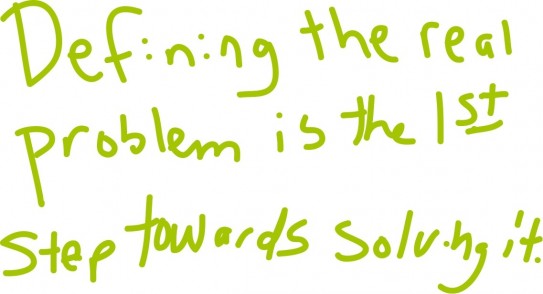In an organizational setting, when little issues arise, I try to consider the bigger issue at stake. Not everything has a bigger context worth considering, but strategic leaders consistently consider if there is one.
For example, if a staff member makes an awkward or unusually negative comment during a meeting, I try to consider the bigger issue. Did he or she simply make a random remark, was the comment limited to the meeting, or is there something unspoken going on that could point to a bigger issue in the person’s life or the organization? If I can’t immediately discern, I’ll most likely question this after the meeting.
If I receive criticism from someone I trust, is it limited to the matter being criticized, or is there a bigger, unspoken issue of concern? I’ll always try to discern what isn’t clear, but ask if I need more clarity.
As a leader, I have learned that I don’t always get the full story. As much as I try to lead around that fact, some people are afraid of hurting my feelings, may be intimidated by my position, or just fearful of speaking up with their true feelings.
I discipline myself to always consider bigger issue questions such as:
- What’s the real problem?
- What’s really at stake?
- Who is really affected by this decision?
- What’s the real potential outcome?
- How much is this really costing?
I know as a leader that what I don’t know may be the real issue. Discovering it soon enough avoids potential greater damage in the organization.
What other question should we be asking?





 Logging you in...
Logging you in...
 Loading IntenseDebate Comments...
Loading IntenseDebate Comments...
Other questions that we could be asking:
— What would be the long term implication?
— Is the overall risk manageable within our acceptable limits?
— After all, does it add value to whatever we do?
Good questions